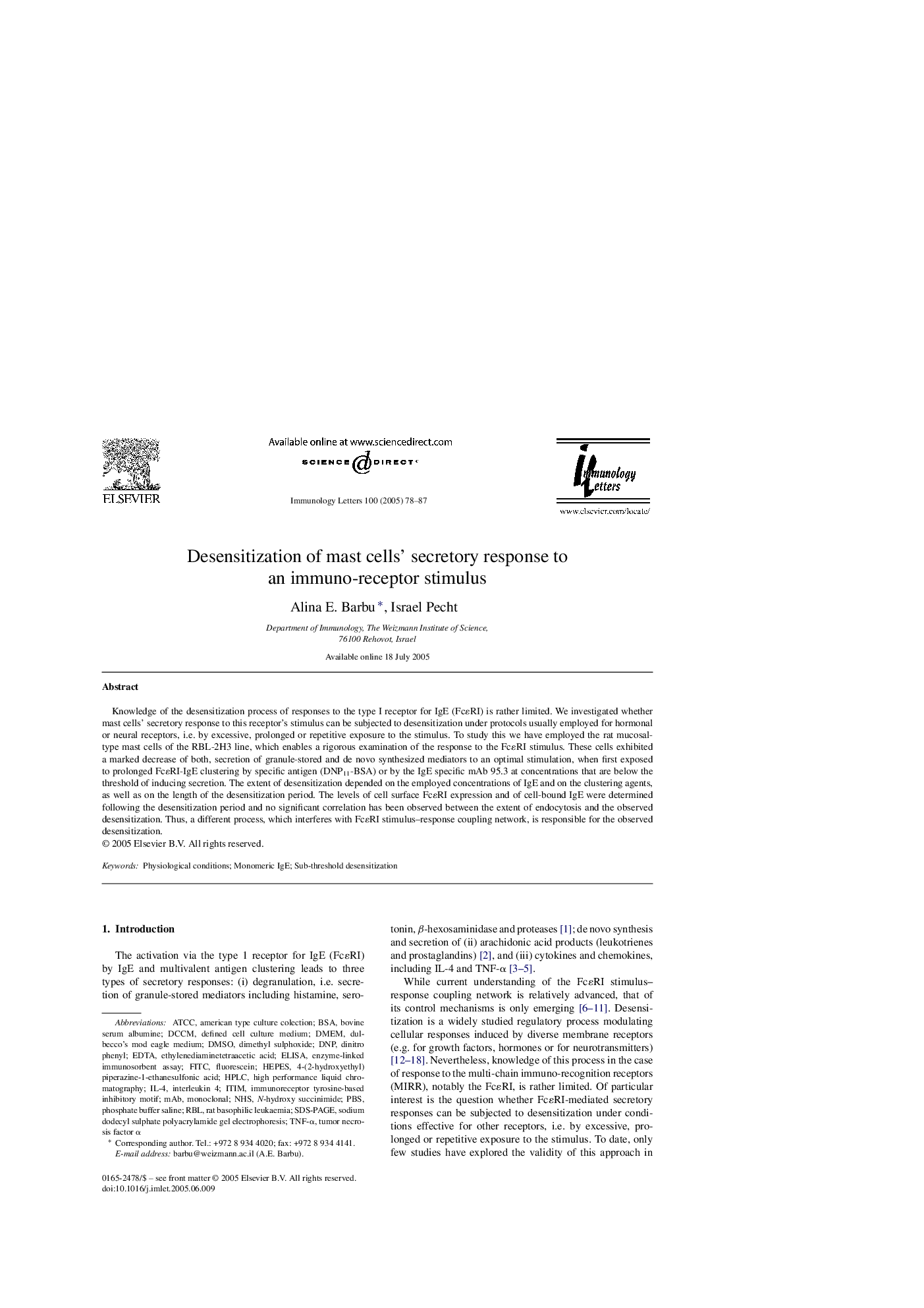| Article ID | Journal | Published Year | Pages | File Type |
|---|---|---|---|---|
| 9266280 | Immunology Letters | 2005 | 10 Pages |
Abstract
Knowledge of the desensitization process of responses to the type I receptor for IgE (FcÉRI) is rather limited. We investigated whether mast cells' secretory response to this receptor's stimulus can be subjected to desensitization under protocols usually employed for hormonal or neural receptors, i.e. by excessive, prolonged or repetitive exposure to the stimulus. To study this we have employed the rat mucosal-type mast cells of the RBL-2H3 line, which enables a rigorous examination of the response to the FcÉRI stimulus. These cells exhibited a marked decrease of both, secretion of granule-stored and de novo synthesized mediators to an optimal stimulation, when first exposed to prolonged FcÉRI-IgE clustering by specific antigen (DNP11-BSA) or by the IgE specific mAb 95.3 at concentrations that are below the threshold of inducing secretion. The extent of desensitization depended on the employed concentrations of IgE and on the clustering agents, as well as on the length of the desensitization period. The levels of cell surface FcÉRI expression and of cell-bound IgE were determined following the desensitization period and no significant correlation has been observed between the extent of endocytosis and the observed desensitization. Thus, a different process, which interferes with FcÉRI stimulus-response coupling network, is responsible for the observed desensitization.
Keywords
IL-4N-hydroxy succinimideRBLITIMNHSDNPATCCHEPESFITCmAbPBSDMEM4-(2-Hydroxyethyl)piperazine-1-ethanesulfonic acidBSADMSObovine serum albumineEDTAEthylenediaminetetraacetic acidSDS-PAGEsodium dodecyl sulphate polyacrylamide gel electrophoresisInterleukin 4ELISAEnzyme-linked immunosorbent assaytumor necrosis factor αdimethyl sulphoxidePhysiological conditionsTNF-αphosphate buffer salineFluoresceinMonoclonalImmunoreceptor tyrosine-based inhibitory motifhigh performance liquid chromatographyHPLC
Related Topics
Life Sciences
Immunology and Microbiology
Immunology
Authors
Alina E. Barbu, Israel Pecht,
